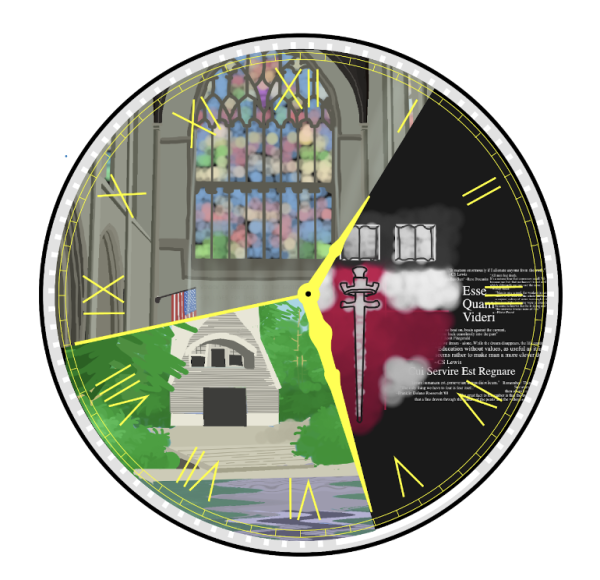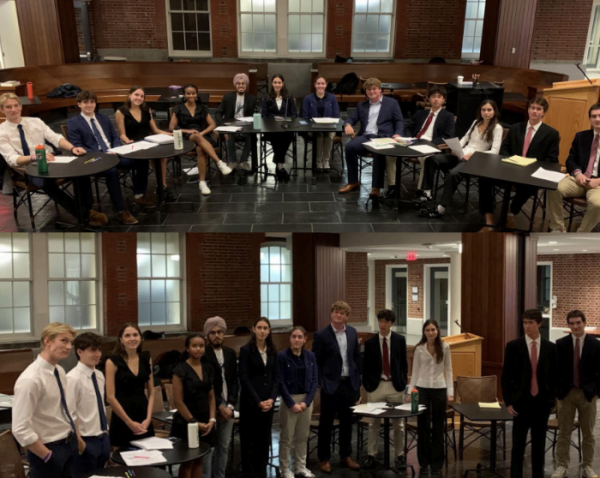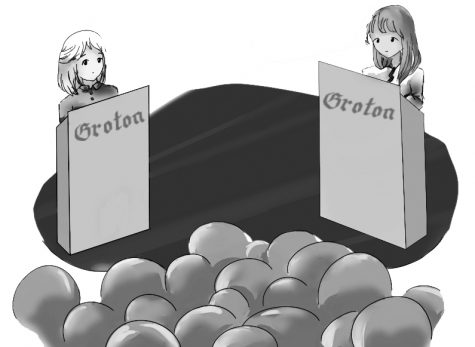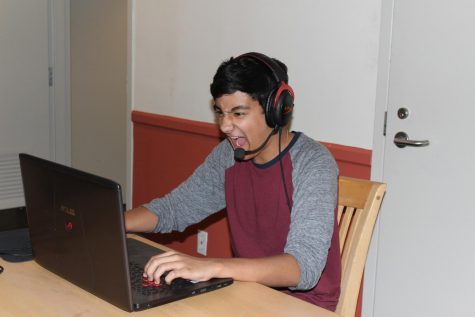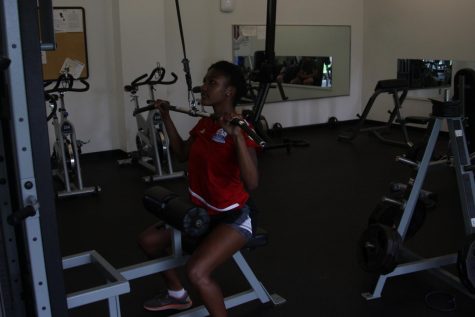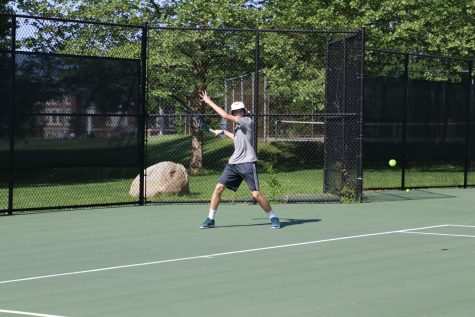With Freeman-Coppadge Departing, GCE Looks Towards Next Year
On Prize Day, in addition to the 84 graduating seniors, Groton School will bid farewell to English teacher and Director of Community Engagement Jonathan Freeman-Coppadge. Mr. Freeman-Coppadge, his husband Darren, and their son Langston will return to their family community in Maryland, where Mr. Freeman-Coppadge will teach at Severn School and Darren Freeman-Coppadge will be working as a psychologist at the University of Maryland College Park .
Mr. Freeman-Coppadge has been the Director of Community Engagement for the past five years. In his time as director, he revamped what was then known as Groton Community Service. For one, he changed the program’s name to Groton Community Engagement (GCE) to encourage a more reciprocal view of charitable work. He also cultivated new relationships with community organizations and established biannual Days of Service for Groton students .
Mr. Freeman-Coppadge says has been working with the GCE Board, a group of service-minded students, to accomplish two goals: to deepen relationships with the town of Groton and broaden the student body’s exposure to GCE. Despite progress made in the last five years, though, Mr. Freeman-Coppadge believes that there is more to be done.
“I wanted to find ways for GCE to touch every student some way during their year. I think there’s still a lot of work to do on that front especially…. It’s still possible to go through five years of Groton by only doing two days of community service every year,” he says.
Presently, Mr. Freeman-Coppadge’s successor as Director of Community Engagement has not been announced, but Assistant Headmaster Andy Anderson and Headmaster Temba Maqubela are working through the decision process. According to Mr. Freeman-Coppadge, the administration is considering dividing his responsibilities among many people, thus creating a team of teachers running Groton Community Engagement rather than an individual.
Mr. Freeman-Coppadge says that being driven is among the most important qualities of a community engagement director. “The nature of volunteer work is that there is rarely anyone hanging over you telling you you have to do it,” he says. “The person who organizes it and the people who engage in it have to be self-motivated and dedicated.” He also noted that running GCE was a lot of logistical work that requires excellent organization: emails over the summer, phone calls, supply lists, and surveys.
Fran Saldivar ’19, member of the GCE Board, agrees with Mr. Freeman-Coppadge on the importance of dedication. “Mr. Freeman-Coppadge is one of few members of Groton’s community genuinely concerned with community service in the school,” she says. “Finding a replacement with his kind of dedication will be hard.”
In the transition between community engagement directors, Mr. Freeman-Coppadge and GCE board members anticipate some changes to the program. Some relationships with the broader Groton community, like Our Father’s House, are firmly established and will likely undergo few modifications in the handoff. Others, like Nashoba Park Connection and the tutoring program with Northwest Elementary School in Leominster, are relatively new programs that have potential to change with a new community engagement director and board. Mr . Freeman-Coppadge says, “I would hope that my successor would feel equipped to take some things and run with them, but also free to create new opportunities or change ones that he or she feels are better than what currently exist.”
One of Mr. Freeman-Coppadge’s long-standing initiatives has been upping student participation in service initiatives. “I think in an ideal world students would understand that community engagement needs to be just as much as a priority in their lives as the other things we prioritize as a school.” He argues that the primary way Groton School prioritizes values is through requirements, and while he admitted that there are both philosophical and logistical reasons why there isn’t a service requirement, he does believe that service should be made a more integral part of the student body.
“To grapple with that challenge would force us to ask very hard questions about the way we use time at the school and what requirements are put on students. So far we haven’t asked those questions,” he says.
One way to encourage community engagement at Groton has been offered: earlier this year, Fran Saldivar ’19 wrote an article for The Circle Voice on the potential for community service to be added as an alternative to a religious service. Mr. Freeman-Coppadge was happy about the conversation that the article prompted, but said the religious and service swap would be a hard sell. He asks, “What if the religious programs at Groton involved some form of active service throughout the year? That’s a question that we could reasonably ask sometime in the future.” He also pointed out that many religions have philosophies towards service similar to that of GCE, and community engagement could offer a way by which to realize such philosophies.
As Mr. Freeman-Coppadge prepares to say goodbye to the Circle, he hopes that the student body and the new Director of Community Engagement will “carry on the good work.”
“There is no magic to this job,” he says. “It’s about figuring out where are the opportunities to be a good neighbor and just show up.”



